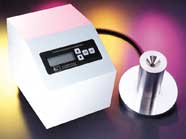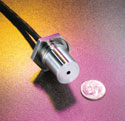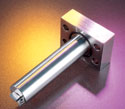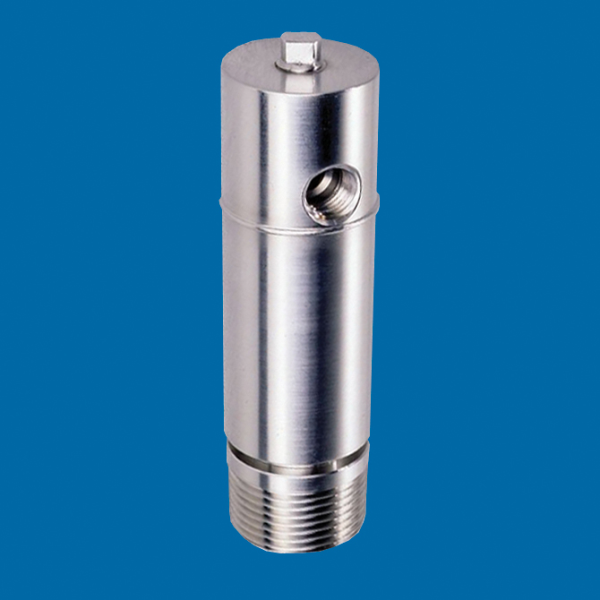Boston—How do you control coating on wire that is finer than a human hair? This is the challenge faced by manufacturers of 30 – 300 micron diameter wire known as winding wire, magnet wire or fine wire. These wires are key components in electric motors, transformers and electric coils required in appliances, cars and other powered devices.
Admin
Recent Posts
Controlling Viscosity for Uniform Fine Wire Coating
Jan 24, 2019 10:00:00 AM / by Admin posted in wire coating, coating viscosity, Coating
H2S-Friendly High Pressure High Temperature Viscometers
Dec 11, 2018 12:00:00 AM / by Admin posted in PVT, reservoir fluid, high temperature viscometer, Exploration, high pressure viscometer, H2S
FOR IMMEDIATE RELEASE
Small Sample Viscometers Key to Accurate Viscosity Analysis
Nov 19, 2018 11:00:00 AM / by Admin posted in biotech, small sample viscometer, lab viscometer
Boston--What do you do if you need accurate viscosity information, but have only a small sample of material available to test? Small sample viscometers are helping researchers, analysts and technicians address this need across a broad array of applications.
Viscometers Provide High Temp Viscosity Analysis: Heavy Oil Research
Sep 26, 2018 12:00:00 PM / by Admin posted in PVT, high temperature viscometer, Exploration
FOR IMMEDIATE RELEASE
CVI Small Sample Viscometer Used for Silkworm Protein Measurements
Sep 4, 2018 12:00:00 AM / by Admin posted in viscosity measuring solution, biotech, small sample viscometer, lab viscometer
 Boston—Cambridge Viscosity announces that a prestigious Boston area university has purchased a small sample viscometer for biomedical research in its school of engineering.
Boston—Cambridge Viscosity announces that a prestigious Boston area university has purchased a small sample viscometer for biomedical research in its school of engineering.
Lube Oil Viscosity Testing For Optimal Compressor Performance
Jul 18, 2018 12:00:00 AM / by Admin posted in VISCOpro2000, process viscometers, lube oil, lube oil viscosity, 571 sensor, compressor viscosity
Boston—Danfoss Compressors is using a Cambridge Viscosity small sample viscometer to test refrigerant and oil mixtures at their Tianjin, China factory.
The viscometer includes the Cambridge VISCOpro2000 electronics and SPL 571 lube oil viscometer sensor with multiple piston ranges to test compressor performance using new combinations of lube oils and refrigerants. The lower the viscosity of this mixture, the more efficient the compressor is. However, if viscosity is too low, the compressor can wear out prematurely. By achieving the optimal balance of efficiency and lubricity, the company can improve compressor performance while using more environmentally friendly refrigerants.
Danfoss engineers cite the viscometers’ ease-of-use, robust functionality and high degree of accuracy among the chief reasons for their use. The VISCOpro2000 enables users to monitor critical fluid processes and capture real-time data. The addition of the 571 sensor—used extensively for compressor, used oil analysis, on-engine and hydraulic fluid applications—provides for installations where form factor and small sample volume are important. “Danfoss was restricted in the amount of area they had, and Cambridge’s miniature lube oil viscometer is the perfect choice when limited to tight spaces,” explains Cambridge Viscosity China Agent Miker Wang of Suzhou TAIEN.
Cambridge’s viscosity management technology is based upon a simple and reliable electromagnetic concept. Two coils move the piston back and forth magnetically at a constant force. Proprietary circuitry analyzes the piston’s two-way travel time to measure absolute viscosity. A built-in temperature detector (RTD) senses the actual temperature in the sampling chamber. Constant in and out motion keeps samples fresh, mechanically scrubs the sampling area and provides excellent viscosity tracking.

About Cambridge Viscosity
Cambridge Viscosity, a leader in small sample viscometer systems for laboratory and process environments, designs automated viscometers used worldwide in petroleum, exploration and refining applications to ensure accurate viscosity in both lab and operations. Cambridge’s worldwide reach is important for providing application engineering support and service wherever and whenever needed.
Cambridge Viscosity’s sensors and viscometer systems conform to ASTM, DIN, JIS and ISO standards, with a range of models designed to meet specific industry and application needs.
High Temp, High Shear Viscometers For Asphalt Viscosity Control
Jun 19, 2018 11:00:00 AM / by Admin posted in 392 sensor, refining, VISCOpro1600, high pressure viscometer, asphalt viscosity
FOR IMMEDIATE RELEASE
Cambridge Flanged Viscometer Registered in ABSA Program
May 9, 2018 12:00:00 PM / by Admin posted in process viscometers, 392 sensor, oil viscosity, refining, marine fuel
Boston—Cambridge Viscosity’s flanged viscometer, or SPL/C 392 sensor, has been accepted for registration in the Alberta Boilers Safety Association (ABSA) Design Registration Program. This designation certifies that the sensor design complies with the Safety Codes Act.
“Being accepted into ABSA’s program certifies that the SPL/C 392 sensor can be used in high pressureenvironments up to 1400 PSI,” says Cambridge Director of Engineering Daniel Airey. “This sensor is particularly effective for marine fuel, oil pipelines and refineries.”
The SPL/C 392 in-line viscometer provides continuous, real-time measurement of temperature and viscosity. The sensor’s patented technology is based upon a simple, reliable electromagnetic concept. Two coils pull a piston back and forth within a constantly refreshed sample of process fluid. Proprietary circuitry analyzes the piston’s travel time to measure absolute viscosity. A built-in resistance temperature detector (RTD) senses the actual temperature in the measurement chamber.
Measurements can be made in any of the 13 different 20:1 viscosity ranges, covering a span of 0.2 to 20,000 cP. The sensor is designed with a four-bolt stainless steel SAE Code 61 flange and is easily installed in pipelines ranging from 2” and larger. The sensor’s self-cleaning feature provides for low-maintenance and ease-of-use across applications.

About Cambridge Viscosity
Cambridge Viscosity is the leading supplier of automated viscometers used by oil exploration and refining, coating, chemical and life science companies to optimize product and process performance. Cambridge Viscosity's sensors and viscometer systems conform to ASTM, DIN, JIS and ISO standards, with a range of models designed to meet specific industry and application needs.
Type certifications include ATEX, CE and FM. CSA certification is available upon request. Cambridge's global reach provides application engineering support and service wherever and whenever needed. To learn more visit www.cambridgeviscosity.com.
Optical Lens Maker Controls Coating Viscosity with CVI Viscometers
Mar 26, 2018 9:00:00 AM / by Admin posted in VISCOpro2000, coating viscosity, VISCOpro1600, Coating, lens viscosity
FOR IMMEDIATE RELEASE
Shipping Company Relies on Cambridge Viscosity for HFO Combustion
Jan 12, 2018 11:00:00 AM / by Admin posted in heavy fuel oil viscosity, fuel combustion
FOR IMMEDIATE RELEASE
Coating Viscosity Control Best Practices
Nov 7, 2017 9:08:00 AM / by Admin posted in viscosity control, coating viscosity, Coating
Coating viscosity control is a significant challenge for all coating operations. While many factors impact the film’s ultimate characteristics, the viscosity of the coating material is of central importance in achieving consistency. The viscosity of a coating relates directly to the concentration of coating solids in the fluid, which is the basis for the thickness and uniformity of the film.
Incorrect film thickness results in off-quality unusable end products, with unacceptable visual or other performance characteristics. Scrap reduces yield, in addition to the loss of costly coating materials and the environmental costs associated with manufacturing. Periodic manual viscosity checks increase labor costs and are subject to operator variance. Plant operational characteristics—temperature changes, blending variations in coating materials, and process-driven evaporation—frequently make off-line measurements impractical.
A typical coating system includes: supplies of base stock and make-up fluid, an agitated mix tank, a pump, heater, filter, the feed line to the applicator, the applicator itself, and the return line to the mix tank. The applicator can utilize a dip, roll, spray, sputter or other process. To accurately and reliably control coating viscosity, Cambridge Viscosity recommends the following best practices.
1. Utilize closed-loop control. Locate the viscosity sensor so it is measuring the characteristics of the material that is actually being applied to the end product. The best location is in the feed line to the applicator. Sensor information should be fed directly to the electronics that controls the addition of make-up fluid or solvent. An integrated PID controller provides excellent results. A separate level sensor for base stock addition completes the system.
2. Temperature-compensated viscosity is essential. Temperature has a significant impact on viscosity, but not necessarily on coating concentration. Unfortunately, temperatures in production environments are often not well controlled. Viscosity and thus costing solid levels must be correct despite temperature variations. Coatings have repeatable temperature-viscosity relationships that can be readily modeled mathematically, and can be directly programmed into electronics to provide temperature-compensated viscosity for accurate viscosity control despite temperature changes.
3. Offline measurements are important, but must be tightly controlled. Off-line measurements are often the standard to which coaters control viscosity. Unfortunately, they are subject to significant error from a variety of sources. These off-line measurements can be via cups in the production environment, or more sophisticated laboratory equipment. It is important that:
a) The sample is drawn from coating that is typical of that which is being applied.
b) Samples must be taken frequently enough so that variations.
c) Shear conditions in the line be duplicated in the lab.
d) The sample taken and measured such that no off-gassing of the coating is allowed.
e) All aspects of the tests must be handled consistently to negate inherent operator variability.
4) Automated in-line viscosity control removes error. Variations in sample taking and lab techniques are best controlled through automated in-line measurement and control. The sensor can be located so that it measures coating fluid that is representative of the fluid being applied. Solvent or make-up fluid can be automatically added via solenoid control to assure coating fluid consistency. Fluid shear is overwhelmingly controlled for most fluids by the way the fluid is pumped and piped. Consistent shear is achieved by mounting the sensor in the applicator feed line. In this way, operator-induced errors are minimized for accurate and repeatable results.
5) Small size sensors that are suitable for hazardous areas make installation and maintenance easier. Compact sensors are easier to install and maintain. Where sample conditioning is necessary, small sensors require smaller amounts of fluid treatment. Self-cleaning/low maintenance sensors are available in in-line or in-tank configurations.

About Cambridge Viscosity
Cambridge Viscosity is the leading supplier of viscometers for performance coatings worldwide. Cambridge lab and process viscometers use the same core technology and are fully compliant with ASTM D7483. Cambridge instruments are compact, require small amounts of sample, incorporate temperature sensors and are extremely accurate, repeatable and robust. The sensors—utilizing easy to maintain and operate oscillating piston technology—incorporate best practices and are fully proven as reliable devices for performance coating control. Cambridge's global reach provides application engineering support and service wherever and whenever needed.
To learn more visit www.cambridgeviscosity.com.
Biodiesel Viscosity Research at Kansas University with HP Viscometer
Sep 14, 2017 2:44:00 PM / by Admin posted in biodiesel, international, high temperature viscometer, refining, high pressure viscometer, research, lab viscometer
Viscosity Management in Group B, C and D Hazardous Locations
Jul 20, 2017 8:21:00 AM / by Admin posted in 392 sensor, oil analysis, 374 sensor, 372 sensor
Boston—Cambridge viscometers can now be used in Gas Group B hazardous locations in addition to Group C and D hazardous environments. This extension of approvals to Class 1, Division 1, Groups B, C, and D applies to the entire family of in-line 300-series sensors made by Cambridge Viscosity. These are the primary sensors used in refining, exploration, petrochemical and chemical processes, including both standard and high temperature sensors.
The new Gas Group B classification enables these sensors to be used in hazardous locations, which include hydrogen, fuel and combustible process gases containing more than 30% hydrogen by volume or gases of equivalent hazard. Groups C and D include environments that may contain carbon monoxide, ether and hydrogen sulfide, or for Group D, gasoline, acetone, ammonia, benzene, butane, natural gas, propane and other gases of equivalent hazard.
“We are pleased that our 300 sensors have been approved for Gas Group B use. Our sensors have been Group C and D classified for years, but being approved for the more stringent hydrogen environments allows us to provide viscosity management solutions to a whole new segment of customers,” says Cambridge Director of Engineering Daniel Airey.
Cambridge 300 sensors are used in a wide variety of industries for in-line and in-tank applications. Cambridge’s viscometers are well suited to the rigors of harsh environments due to their robust, durable design and construction.

About Cambridge Viscosity
Cambridge Viscosity is the leading supplier of automated viscometers used by oil exploration and refining, coating, chemical and life science companies to optimize product and process performance. Cambridge Viscosity's sensors and viscometer systems conform to ASTM, DIN, JIS and ISO standards, with a range of models designed to meet specific industry and application needs. Certifications include ATEX, CE, and FM. CSA certification is available upon request. Cambridge's global reach provides application engineering support and service wherever and whenever needed. To learn more visit www.cambridgeviscosity.com.
Process Viscometers Control Quality of Fuel-Efficient Diesel Blend
Jun 15, 2017 12:00:00 AM / by Admin posted in VISCOpro2000, monitor viscosity, diesel viscosity, refining, in-line viscometers, 372 sensor
Boston—One of the largest US refineries has installed Cambridge Viscosity process viscometers at their diesel refinery in Texas. The company is using three VISCOpro 2000 viscometers, combined with 372 sensors, to monitor the quality of the viscosity of a diesel formulation that includes sulfur. The refinery has plans to use the viscosity system for full control of the process in the near future.
The viscometers are installed in one-quarter inch bypass lines, and set up for the final production stage to ensure quality control of their fuel-efficient diesel mixture. The VISCOpro 2000 allows for automated, continuous monitoring, as well as hands-on control, including the ability to change settings, measure different attributes, and capture and analyze real-time data. The viscometer can be programmed for up to 40 different fluid settings—enabling rapid changeovers in production processes—and features control set points and alarms (six different settings), using an easy menu-driven interface.
“The refiner chose the VISCOpro 2000 due to the sensor’s ability to precisely measure and control viscosity,” says CVI Senior Applications Engineer Cole Nee “The viscometer’s rugged construction is vibration resistant, and is designed to withstand the harsh conditions and demands of the refinery environment. Our viscometers are easy to operate and low-maintenance.”
About Cambridge Viscosity
Cambridge Viscosity, a leader in small sample viscometer systems for laboratory and process environments, designs automated viscometers used worldwide in petroleum, exploration and refining applications to ensure accurate viscosity in both lab and operations. Cambridge’s worldwide reach is important for providing application engineering support and service wherever and whenever needed.
Cambridge Viscosity’s sensors and viscometer systems conform to ASTM, DIN, JIS and ISO standards, with a range of models designed to meet specific industry and application needs. Certifications include ATEX Class 1, Div. 1, CE, FM and NEMA. CSA certification is also available upon request.
Gulf Coast Refiner Uses Viscosity Control for Diesel Fuel Refining
May 10, 2017 9:58:00 AM / by Admin posted in process viscometers, refining
FOR IMMEDIATE RELEASE












